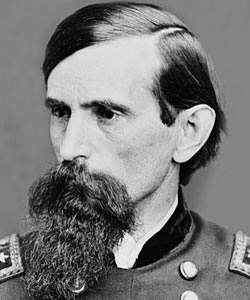Lew Wallace (American National Biography)
Scholarship
When the war broke out, Wallace was named adjutant general for Indiana. Within a week he more than doubled the state's quota for regiments in camp and was made colonel of the Eleventh Indiana, a Zouave regiment. He was promoted to brigadier general in September 1861 and to major general in March 1862, after his important service at the capture of Fort Donelson. This rapid rise in the military hierarchy was amply justified by Wallace's energy as an officer, decisiveness in command, and concern for his troops. Unfortunately, in the next important combat in which he was engaged, the battle of Shiloh, his actions as commander of two brigades in support of General William T. Sherman's flank at Stony Lonesome were somewhat ambiguous; he may have been dilatory in marching his troops. Long after the battle, and perhaps for political reasons, Wallace was criticized by General Henry Halleck, temporarily losing his command on two occasions. Both times his command was restored, once by President Abraham Lincoln, once by General Ulysses S. Grant, but there can be no doubt that the ensuing scandal bothered him for the rest of his life. In his last years Wallace persisted in attempting to convince the Shiloh National Military Park Commission that his version of the events of the battle was the correct one. In any event, his later service in the war was blameless.
Herbert F. Smith, "Wallace, Lew," American National Biography Online, February 2000, http://www.anb.org/articles/16/16-01707.html.



